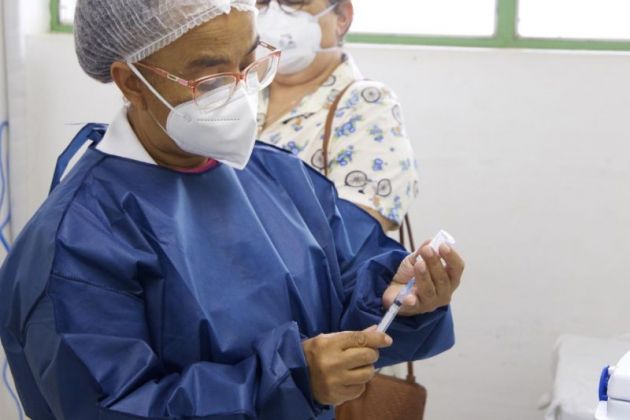Faith communities urged to work to overcome mpox outbreak

The World Council of Churches is urging faith communities to work alongside governments and wider civil society to overcome the mpox outbreak.
The call follows the World Health Organization's Aug. 14 declaration that mpox is an international public health emergency.
The call by the WCC follows on the work that churches and the faith community did in combatting HIV and AIDS and the stigma attached to it, especially in the latter part of the 20th century.
The current strain is transmitted through routine physical contact, even without intimate contact.
It said that for most people, the infection causes a relatively mild disease characterized by fever, headaches, rashes, and blisters on the skin.
But for people with weakened immune systems, the outcomes of the disease can be worse, causing severe illness with more serious skin lesions and other problems that can lead to death.
Four out of 100 people with mpox are estimated to manifest severe symptoms of this current strain.
WCC general secretary Rev. Pillay said that this public health emergency obliges the world to collaborate, collaborate closely, be committed, and invest in overcoming this emerging crisis.
"Vaccines are one component of the strategy," Pillay. said. "Countries in the global north have national stockpiles, possibly of millions of doses that can potentially be released to the needy."
The outbreak can only be curbed by the full spectrum of a good public health response, Pillay said.
He called on churches and faith communities to be "informed and to communicate reliable information regarding the outbreak and to work against misinformation," adding that churches can also educate "communities in the prevention of transmission" and "prevent the stigmatization of people affected."
Churches can also provide care—including spiritual and psychosocial support—for those affected by mpox, Pillay noted.
They can also advocate "for countries in the global north to release stockpiles of mpox vaccine for use in most affected regions," he said, and for "functioning health systems that provide universal healthcare."
Pillay noted that by calling for sharing the common burdens of the world, so that the challenges become bearable and surmountable.
"By upholding each other, we uphold humanity and all creation," he said.
WHO says on its website that of the confirmed cases in the WHO African region in 2024, 95% were reported in the Democratic Republic of the Congo (DRC), which is experiencing an upsurge of mpox cases.
It has more than 15,000 clinically compatible cases and over 500 deaths reported, already exceeding the number of cases observed in the DRC in 2023.
Also, this year, cases of mpox, linked to one variant of mpox, have so far been reported in the Central African Republic and the Republic of Congo, and cases linked to another variant have been reported in Cameroon, Cote d'Ivoire, Liberia, Nigeria, and South Africa.
On Aug. 15, Sweden became the first country outside the African continent to confirm the mpox clade 1b variant in an individual with a travel history to central Africa, according to the WHO